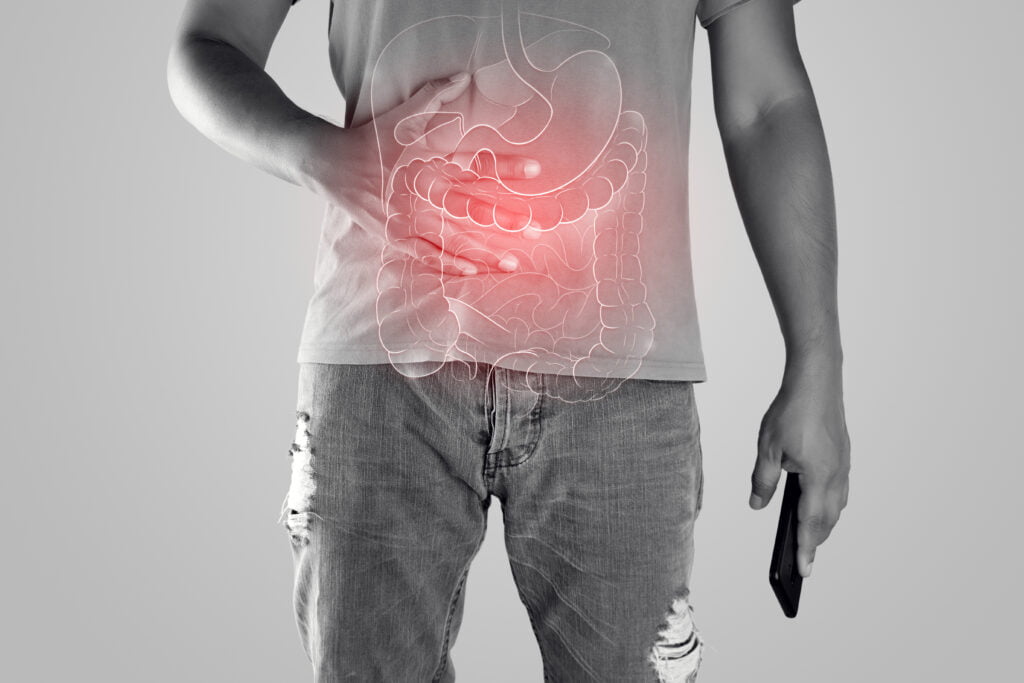The Small Intestine and Your Health
The health of your gut is extremely important, as the small intestine is responsible for absorbing the majority of the nutrients from your food. If your gut isn’t functioning properly, you could experience a variety of problems including malnutrition, digestive issues, and even autoimmune diseases.
There are a number of things you can do to keep your gut healthy, including eating a balanced diet, exercising regularly, and reducing stress. It’s also important to avoid foods that can damage the gut lining, such as processed foods, artificial sweeteners, and alcohol.

By taking care of your gut health, you can ensure that your body is getting the nutrients it needs to function at its best.
Small Intestine Function
Your small intestine is responsible for absorbing the majority of the nutrients from your food. It does this by breaking down the food into smaller pieces and then extracting the nutrients from it.
The small intestine also plays a role in immunity, helping to protect the body from harmful bacteria and viruses. It also helps to produce hormones that regulate blood sugar and energy levels.
Immunity
By keeping your gut healthy, you can ensure that your body is getting the nutrients it needs to function at its best. You’ll also be less likely to get sick, as your gut will be better equipped to fight off invading pathogens.
Horomones
One of the most important functions of the small intestine is its role in hormone production. The small intestine produces hormones like insulin and leptin, which help to regulate blood sugar and energy levels. It also produces hormones like ghrelin and cholecystokinin, which help to control hunger and digestion.
If the gut isn’t functioning properly, it can lead to hormonal imbalances that can cause problems like weight gain, fatigue, and mood swings.
One of the most important hormones produced by the small intestine is insulin. Insulin helps to regulate blood sugar levels, and if it’s out of balance it can lead to diabetes or prediabetes.
The small intestine also produces leptin, which helps to control hunger and energy intake. If leptin levels are out of balance it can lead to obesity or anorexia.
Ghrelin and cholecystokinin are also produced by the small intestine, and both play a role in appetite and digestion. Ghrelin stimulates hunger while cholecystokinin promotes feelings of fullness.
If any of these hormones are out of balance it can cause problems with weight gain or loss, energy levels, and digestion. By taking care of your gut health, you can help keep your hormone levels in check and maintain your overall health.
Location
So, just where is the small intestine located? The small intestine is located in the upper right side of the abdomen, just below the ribcage. It’s a long, coiled tube that measures about 20 feet in length.
Symptoms of an Unhealthy Gut
If your gut isn’t functioning properly, you may experience a variety of symptoms including:
Malnutrition
If the gut isn’t absorbing the nutrients from your food, you may become malnourished. This can cause problems like weight loss, fatigue, and anemia.
Anemia is a condition that occurs when there are not enough red blood cells in the body. This can cause problems like fatigue, shortness of breath, and pale skin.
The most common cause of anemia is a lack of iron in the diet. Iron is essential for the production of red blood cells, so if you’re not getting enough iron, you may become anemic.
Other causes of anemia include malabsorption syndromes, blood loss, and chronic inflammation. If you’re experiencing any of these symptoms, it’s important to see a doctor to get diagnosed and treated.
Digestive issues
If the gut isn’t breaking down food properly, you may experience digestive issues like bloating, constipation, and diarrhea.
There are many things that can cause you to feel bloated, including eating too much, drinking carbonated beverages, and eating foods that are high in fiber. When you eat too much, your stomach expands and puts pressure on the small intestine. This can cause the small intestine to become stretched out and inefficient at extracting nutrients from food.
Drinking carbonated beverages can also cause you to feel bloated. The carbonation can distend the stomach and put pressure on the small intestine. Foods that are high in fiber can also cause you to feel bloated. Fiber is difficult for the gut to digest, so it can cause the intestines to become distended and uncomfortable.
Autoimmune diseases
If the gut is damaged, it can lead to autoimmune diseases like Crohn’s disease and ulcerative colitis.
Autoimmune diseases are conditions that occur when the body’s immune system attacks its own cells. There are many different autoimmune diseases, and they can affect any part of the body.
The small intestine is a common target of autoimmune diseases. Crohn’s disease and ulcerative colitis are two of the most common small intestine autoimmune diseases. These diseases cause inflammation and damage to the small intestine, which can lead to problems with nutrient absorption and digestion.
Keeping the Small Intestine Healthy

There are a few things you can do to help keep your gut healthy and functioning properly.
1. Eat a balanced diet
A balanced diet is essential for gut health. Make sure you’re eating plenty of fruits, vegetables, and whole grains. These foods are high in fiber and nutrients, which the gut needs to function properly.
2. Drink plenty of water
Drinking plenty of water is important for gut health. It helps to flush out toxins and keep the digestive system running smoothly.
3. Avoid processed foods
Processed foods are bad for gut health. They’re high in sugar, unhealthy fats, and chemicals that can damage the gut lining and disrupt digestion.
4. Eat probiotic-rich foods
Probiotic-rich foods are good for gut health. They contain bacteria that help to keep the gut healthy and functioning properly. Some good probiotic-rich foods include yogurt, kefir, sauerkraut, and kimchi.
5. Exercise regularly
Exercise is good for gut health. It helps to keep the digestive system moving and prevents constipation.
Conclusion
The small intestine is a vital part of the digestive system, and it’s important to keep it healthy and functioning properly. There are a few things you can do to help keep your gut healthy, including eating a balanced diet, drinking plenty of water, avoiding processed foods, and eating probiotic-rich foods. You should also exercise regularly to keep the digestive system moving. If you’re experiencing any symptoms that may be related to gut health, it’s important to see a doctor for diagnosis and treatment.






